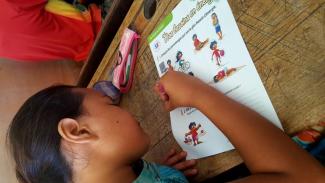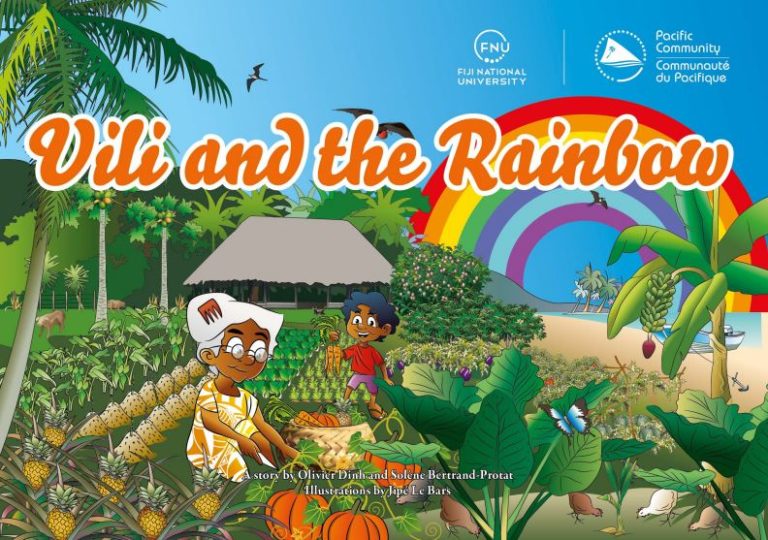
Nutrition education session conducted in one of the schools in Wallis
Fiji National University (FNU) and the Pacific Community (SPC) has jointly developed a project called “Healthy Child Promising Future – Promoting health in primary school settings” targeting primary school children aged 7 to 9 living in Fiji and Wallis and Futuna, which was submitted by FNU for French Pacific Fund 2017.
An increase in the prevalence of childhood obesity can currently been seen across the globe. This is a worrisome trend given that overweight and obesity are important non-communicable disease risk factors and as such, hinder progress in attaining the UN Sustainable Development Goals. And yet, there is a lack of data on the body sizes of children in the Pacific islands and no intervention projects exist to control this major problem.
The special feature of the project is that the subjects are not only the children (7-9 Years) old but their parents also. The project emphasises a global approach to addressing childhood obesity where both teachers and parents play crucial roles in the project.
In May 2017, a group of experts and focal persons from the health and education sectors in Fiji and Wallis and Futuna met to work together to design the programme’s broad outlines. They validated the themes to be included in the project (balanced meals, healthy snacks, the importance of reading food labels, the influence of advertisements, eating local products, etc.). Then a smaller committee of educational advisers and a nutritionist worked on developing classroom sessions that cover all the selected topics by means of a variety of enjoyable teaching resources (posters, multimedia, comic strips, board games, etc.) developed specifically for the children. The sessions are also developed for the parents and care takers.
A scientific research component has been added to the project. As Dr Pragya Singh, Associate Professor at FNU in Dietetics and Nutrition explained, “Monitoring has been arranged with an assessment of the children and parents’ knowledge, attitude and practice before the project and then again at the end to measure the project’s impact. Data on the children’s height and weight is also collected to update overweight statistics and monitor changes in the children’s body sizes.”
Children will learn about eating healthy through the use of educational resources and participate in 30 minutes of structured physical activity sessions each day. “Food is not the only aspect to be considered in the battle against obesity. It is also important to encourage children to move more,” said Solène Bertrand-Protat, Non-Communicable Disease Adviser at SPC’s Public Health Division.
The project was recently launched in all the schools in Wallis and Futuna and in Samabula Primary School in Fiji. The teachers have agreed to support the project as they are convince that it is very important for the children and the future of their country.
Media contact:
Dr Pragya Singh, Associate Professor, School of Public Health & Primary Care, Fiji National University. pragya.singh [at] fnu.ac.fj (pragya[dot]singh[at]fnu[dot]ac[dot]fj)
Solène Bertrand-Protat, Non-Communicable Diseases Advisor, Public Health Division, SPC – soleneb [at] spc.int (soleneb[at]spc[dot]int)
Useful link:
 Vili and the Rainbow, Pacific Community (SPC) & Fiji National University (FNU)
Vili and the Rainbow, Pacific Community (SPC) & Fiji National University (FNU)
